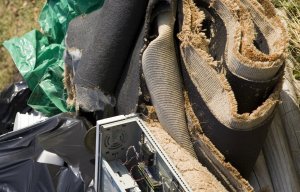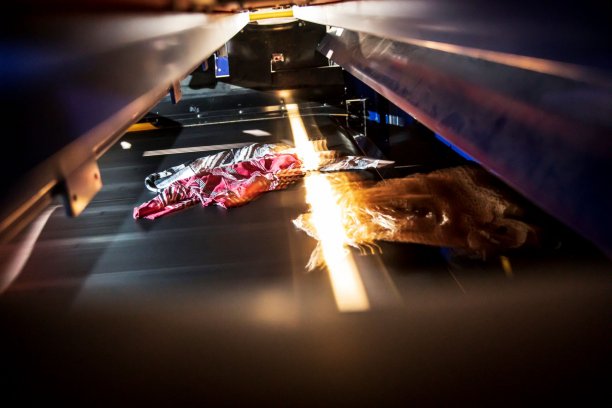
New CRUK resource for carpet recycling
Study will take lessons from first fully scaled automated textile sorting facility in Sweden.

15th April 2024
Innovation in Textiles
|
United Kingdom
Tomra Textiles and Circle-8 Textile Ecosystems have entered into a collaborative agreement to advance the first automated textiles sorting and pre-processing facility for non-reusable waste textiles in the UK.
The companies will conduct a feasibility study for an automated textile sorting and pre-processing facility, emphasising solution and process designs that can be scaled.
The explorative collaboration agreement is focused on the UK market where despite higher average re-use levels compared to the rest of Europe, an estimated 700,000 tons of non-reusable textile waste is still generated every year.
As a key member of ACT UK, a consortium set up to industrialise textile sorting in the country in 2023, London-based Circle-8 is working with stakeholders along the textile value chain to realise a circular textiles ecosystem. It will now draw on Tomra’s experience and know-how to develop solution designs for a future automated sorting and pre-processing facility for non-reusable textiles in the UK.
Tomra, headquartered in Oslo, Norway, was the main technology provider to the world’s first fully scaled automated textile sorting facility, SIPtex, in Malmö, Sweden and the Swedish research project has provided valuable lessons for optimising and reconfiguring Tomra’s technology for the industrial-scale sorting of post-consumer garments. The ambition of the feasibility study is to devise an automated solution for textile sorting by fibre composition and colour, in addition to the removal of disruptors such as buttons, zippers and trims, and cutting materials to sizes that make them suitable for textile-to-textile recycling processes.
“The automated sorting and pre-processing of non-reusable textiles is crucial to enabling a truly circular textiles value chain by turning them into high quality feedstock required by existing and emerging textile-to-textile recyclers,” said Cyndi Rhoades, co-founder and CEO of Circle-8 Textile Ecosystems. “We are looking forward to making positive progress in collaboration with Tomra Textiles,”
“Realising textile circularity at scale will require regulations and incentives, infrastructure investments, and a strong digital core,” added Vibeke Krohn, head of Tomra Textiles. “But most of all, it will require the collaboration and co-creation of solutions across the value chain. Tomra has more than 50 years of experience in developing technologies enabling the shift from linear to circular. In collaboration with Circle-8 and its network of retailers and brands in the UK, we hope to make meaningful progress on designing a solution for the sorting and pre-processing of non-reusable textiles.”

Business intelligence for the fibre, textiles and apparel industries: technologies, innovations, markets, investments, trade policy, sourcing, strategy...
Find out more